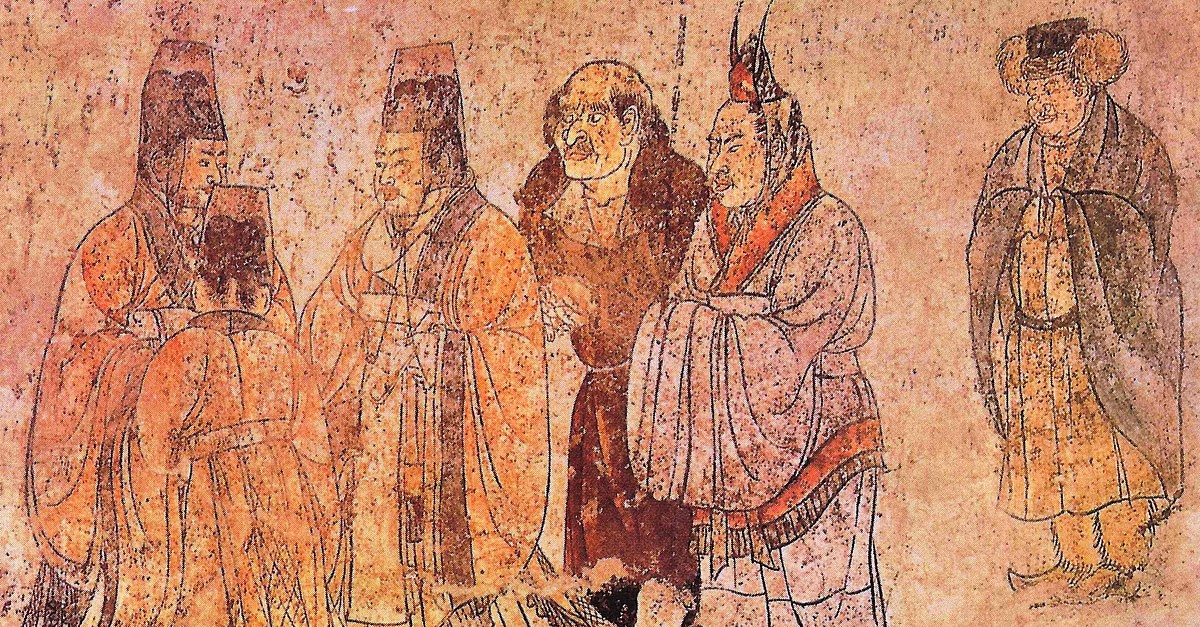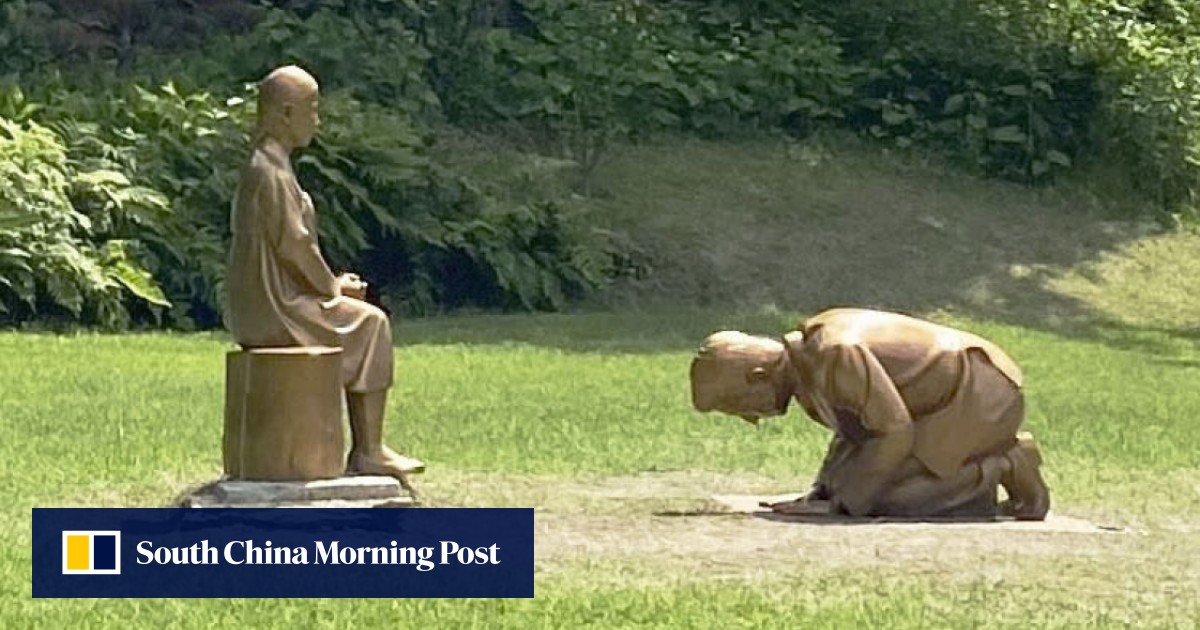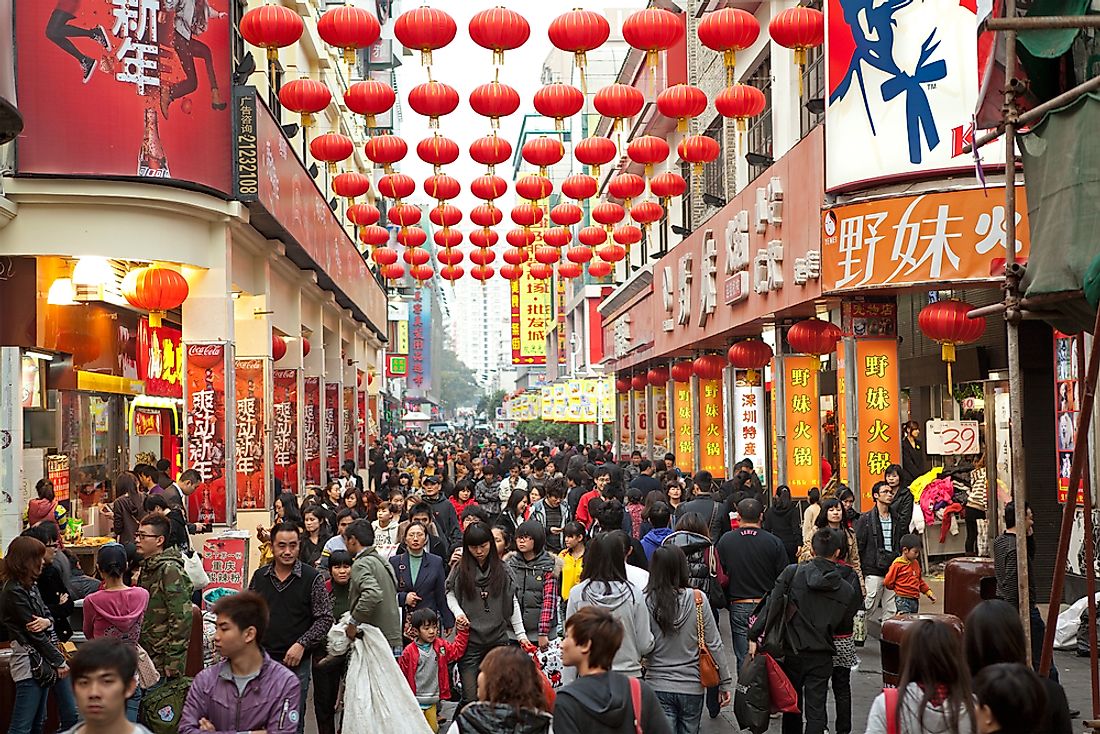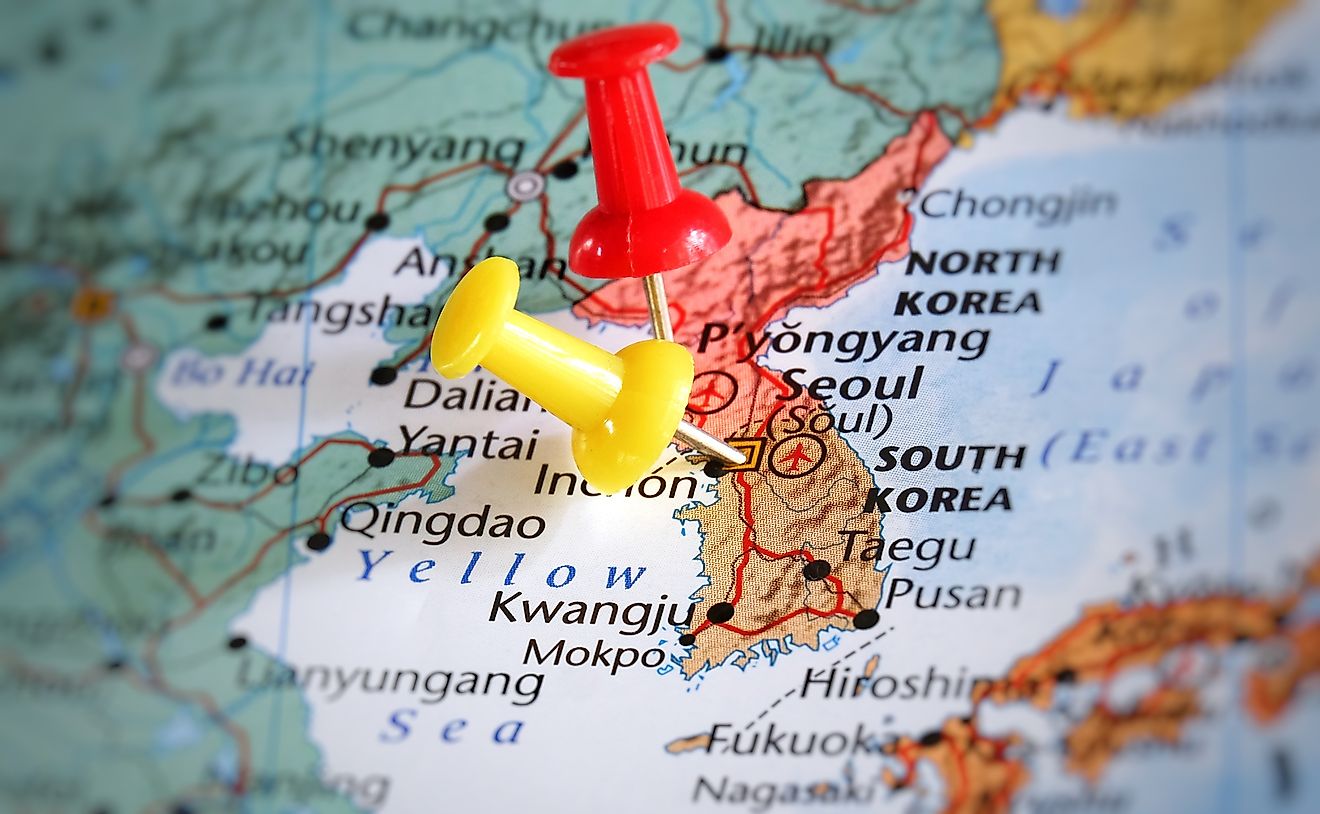reedak
Well-Known Member
- Joined
- May 1, 2014
- Messages
- 781
1. A leading South Korean presidential candidate has accused China of “cultural appropriation” after a performer wearing a traditional Korean dress appeared at the opening ceremony of the Beijing Olympics.
Friday’s grand opening of the Games featured a young woman carrying a Chinese flag in a pink and white Korean traditional dress — known as hanbok — as part of a group of other performers representing the country’s ethnic groups.
China is home to one of the world’s largest populations of overseas Koreans and the countries share deep cultural links.
But the appearance of the hanbok sparked anger online in South Korea, with many accusing Beijing of “stealing” the country’s culture.
Lee Jae-myung, the ruling Democratic Party’s candidate in upcoming presidential elections, condemned China’s “cultural appropriation”.
The office of his main opponent, conservative Yoon Suk-yeol, also accused Beijing of being “disrespectful” in its decision to feature the dress, urging Seoul to seek an apology from China....
Source: https://www.breitbart.com/news/chin...ver-korean-dress-in-olympic-opening-ceremony/
2. Chinese culture has had a great impact in many areas of Korean culture, including arts, written language, religion, and government administration, with Koreans molding these Chinese models into distinctly Korean forms.
Korean wooden-frame architecture was introduced from China during the Han dynasty and has continued to the modern era. Other Chinese concepts to influence Korean architecture include yin and yang, the five elements, Chinese geomancy, Taoism and Confucianism....
The Buddhist paintings of Goryeo were heavily influenced by the drawing techniques of the Song dynasty. In the Buddhist paintings of Goryeo, the secular and mythical figures were depicted in the form of worshippers or patrons who were in an audience for the sermons of Buddha, who were witnessed of the heavenly realm or who were ritual participants...
Korea's pottery culture has been influence by China as early as 2000 B.C...
Some early Goryeo potters were themselves Chinese. Chinese potters who left their homeland due to political upheaval brought new ceramic technologies and styles to the local Goryeo potters who then managed to make their own Goryeo-style celadon...
Chinese music was introduced in Korea and was performed at the Korean court during the Tang and Song dynasties. The traditional genre of tangak (literally "music of Tang") was imported from China, probably mostly during the Goryeo period. The aak genre, by contrast, was developed in Korea in the fifteenth century based on Chinese written sources from an earlier period, as the style had already fallen out of fashion in China. Examples of tangak include the Nakyangchun (Chinese: 洛阳春; pinyin: Luòyángchūn) and the Boheoja (Chinese: 步虛子; pinyin: bùxūzi) are two Song dynasty ci poetry which were introduced during the Goryeo period and are still being performed in present days Korea...
The majority of literature produced in the Korean peninsula before the twentieth century was written in Classical Chinese; the reason for this is that the indigenous writing system, hangŭl, only developed relatively late (the fifteenth century) and was not widely accepted as a means of writing intellectual discourse until the late nineteenth century.
Several important poets of the ninth and tenth centuries, including Ch'oe Ch'i-wŏn (born 857) and Ch'oe Sŭng-no (927–989) studied in China.
All scriptural and commentarial writings composed by pre-modern Korean Buddhists were written in literary Chinese (Korean hanmun)....
Pre-modern Korea's dynastic governmental systems were significantly indebted to China.
Starting in the Three Kingdoms period, Korean government officials were trained with a Chinese-style Confucian examination system. This examination system continued into the Chosŏn period, but unlike in China the examination was only open to members of the aristocratic upper class.
The national flag of South Korea is derived from the Chinese philosophy yin-yang and the Chinese divination text I Ching.
Korean surnames use Chinese characters. Typically, Korean names use one character for the family name and two for the given name, in close resemblance to Chinese names.
Source: https://en.wikipedia.org/wiki/Chinese_influence_on_Korean_culture
3. “Imitation is the sincerest form of flattery.” This is not a quote from Confucius—or from any Traditional East Asian member of historical significance, for that matter. However, it perfectly describes the way in which elements of Chinese civilization impacted its neighbors. When a country finds itself on the pinnacle of technological advancement, it can often look down and see the faces of millions watching; these faces are watching not only to better themselves, but in hopes of watching the world-dominators get taken down a notch or two. China, a civilization that was superior to its neighbors in every conceivable way, was emulated by both Japan and Korea. Many aspects of Japanese and Korean culture are traced back to roots in Chinese culture.
....The Chinese written language not only served as the first records of both Japanese and Korean history, but was adopted by these countries and served as their first writing systems. An example of this is the slab that was found in Paekche King Muryeong's tomb. This slab, erected in 414, serves as the “earliest extant Korean document (written, although, in Chinese)”. More importantly, the use of a written language allowed both Japan and Korea to better their governments. Due to the fact that Japan and Korea both assimilated to the Chinese written language, they both benefited from Chinese culture....
Source: https://hankeringforhistory.com/chinese-civilizations-impact-on-japan-and-korea/
4. Let us look at the following points to find out how ignorant and arrogant those South Koreans who keep bickering about their so-called “cultural appropriation” by China:
(a) As shown by the articles in section 2 and 3 of this thread, we can find a lot of historical materials that show Chinese influence on Korean culture, including arts, written language, religion, government administration, etc.
(b) The population of Koreans in China includes millions of descendants of Korean immigrants with People's Republic of China citizenship, as well as smaller groups of South and North Korean expatriates, totaling roughly 2.5 million people as of 2019, making it the second largest ethnic Korean population living outside the Korean Peninsula, after the United States.
Aren't 2.5 million Koreans considered an ethnic group out of a total population of approximately 1.4 billion people in China? Do South Korean politicians agree to let all of them resettle on the Korean Peninsula?
(c) In Japan, there is an upswing in hate crimes that see homes burned and death threats made towards ethnic Korean communities, but Koreans in China have maintained high levels of ethnic autonomy and positive ethnic identity. Most Korean women in China still wear the traditional hanbok attire. Does South Korea want China to force its ethnic Korean women to discard their traditional dress? Will South Korea, the US and other Western countries accuse the Chinese government of "cultural genocide" if it bans the wearing of hanbok in China?
Friday’s grand opening of the Games featured a young woman carrying a Chinese flag in a pink and white Korean traditional dress — known as hanbok — as part of a group of other performers representing the country’s ethnic groups.
China is home to one of the world’s largest populations of overseas Koreans and the countries share deep cultural links.
But the appearance of the hanbok sparked anger online in South Korea, with many accusing Beijing of “stealing” the country’s culture.
Lee Jae-myung, the ruling Democratic Party’s candidate in upcoming presidential elections, condemned China’s “cultural appropriation”.
The office of his main opponent, conservative Yoon Suk-yeol, also accused Beijing of being “disrespectful” in its decision to feature the dress, urging Seoul to seek an apology from China....
Source: https://www.breitbart.com/news/chin...ver-korean-dress-in-olympic-opening-ceremony/
2. Chinese culture has had a great impact in many areas of Korean culture, including arts, written language, religion, and government administration, with Koreans molding these Chinese models into distinctly Korean forms.
Korean wooden-frame architecture was introduced from China during the Han dynasty and has continued to the modern era. Other Chinese concepts to influence Korean architecture include yin and yang, the five elements, Chinese geomancy, Taoism and Confucianism....
The Buddhist paintings of Goryeo were heavily influenced by the drawing techniques of the Song dynasty. In the Buddhist paintings of Goryeo, the secular and mythical figures were depicted in the form of worshippers or patrons who were in an audience for the sermons of Buddha, who were witnessed of the heavenly realm or who were ritual participants...
Korea's pottery culture has been influence by China as early as 2000 B.C...
Some early Goryeo potters were themselves Chinese. Chinese potters who left their homeland due to political upheaval brought new ceramic technologies and styles to the local Goryeo potters who then managed to make their own Goryeo-style celadon...
Chinese music was introduced in Korea and was performed at the Korean court during the Tang and Song dynasties. The traditional genre of tangak (literally "music of Tang") was imported from China, probably mostly during the Goryeo period. The aak genre, by contrast, was developed in Korea in the fifteenth century based on Chinese written sources from an earlier period, as the style had already fallen out of fashion in China. Examples of tangak include the Nakyangchun (Chinese: 洛阳春; pinyin: Luòyángchūn) and the Boheoja (Chinese: 步虛子; pinyin: bùxūzi) are two Song dynasty ci poetry which were introduced during the Goryeo period and are still being performed in present days Korea...
The majority of literature produced in the Korean peninsula before the twentieth century was written in Classical Chinese; the reason for this is that the indigenous writing system, hangŭl, only developed relatively late (the fifteenth century) and was not widely accepted as a means of writing intellectual discourse until the late nineteenth century.
Several important poets of the ninth and tenth centuries, including Ch'oe Ch'i-wŏn (born 857) and Ch'oe Sŭng-no (927–989) studied in China.
All scriptural and commentarial writings composed by pre-modern Korean Buddhists were written in literary Chinese (Korean hanmun)....
Pre-modern Korea's dynastic governmental systems were significantly indebted to China.
Starting in the Three Kingdoms period, Korean government officials were trained with a Chinese-style Confucian examination system. This examination system continued into the Chosŏn period, but unlike in China the examination was only open to members of the aristocratic upper class.
The national flag of South Korea is derived from the Chinese philosophy yin-yang and the Chinese divination text I Ching.
Korean surnames use Chinese characters. Typically, Korean names use one character for the family name and two for the given name, in close resemblance to Chinese names.
Source: https://en.wikipedia.org/wiki/Chinese_influence_on_Korean_culture
3. “Imitation is the sincerest form of flattery.” This is not a quote from Confucius—or from any Traditional East Asian member of historical significance, for that matter. However, it perfectly describes the way in which elements of Chinese civilization impacted its neighbors. When a country finds itself on the pinnacle of technological advancement, it can often look down and see the faces of millions watching; these faces are watching not only to better themselves, but in hopes of watching the world-dominators get taken down a notch or two. China, a civilization that was superior to its neighbors in every conceivable way, was emulated by both Japan and Korea. Many aspects of Japanese and Korean culture are traced back to roots in Chinese culture.
....The Chinese written language not only served as the first records of both Japanese and Korean history, but was adopted by these countries and served as their first writing systems. An example of this is the slab that was found in Paekche King Muryeong's tomb. This slab, erected in 414, serves as the “earliest extant Korean document (written, although, in Chinese)”. More importantly, the use of a written language allowed both Japan and Korea to better their governments. Due to the fact that Japan and Korea both assimilated to the Chinese written language, they both benefited from Chinese culture....
Source: https://hankeringforhistory.com/chinese-civilizations-impact-on-japan-and-korea/
4. Let us look at the following points to find out how ignorant and arrogant those South Koreans who keep bickering about their so-called “cultural appropriation” by China:
(a) As shown by the articles in section 2 and 3 of this thread, we can find a lot of historical materials that show Chinese influence on Korean culture, including arts, written language, religion, government administration, etc.
(b) The population of Koreans in China includes millions of descendants of Korean immigrants with People's Republic of China citizenship, as well as smaller groups of South and North Korean expatriates, totaling roughly 2.5 million people as of 2019, making it the second largest ethnic Korean population living outside the Korean Peninsula, after the United States.
Aren't 2.5 million Koreans considered an ethnic group out of a total population of approximately 1.4 billion people in China? Do South Korean politicians agree to let all of them resettle on the Korean Peninsula?
(c) In Japan, there is an upswing in hate crimes that see homes burned and death threats made towards ethnic Korean communities, but Koreans in China have maintained high levels of ethnic autonomy and positive ethnic identity. Most Korean women in China still wear the traditional hanbok attire. Does South Korea want China to force its ethnic Korean women to discard their traditional dress? Will South Korea, the US and other Western countries accuse the Chinese government of "cultural genocide" if it bans the wearing of hanbok in China?






